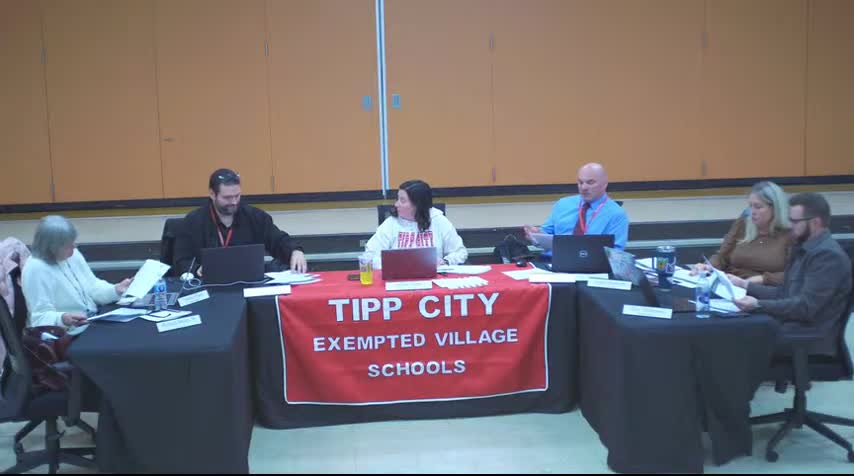Tipp City board hears how proposed state bills could curb levy renewals and shift costs to local taxpayers
Get AI-powered insights, summaries, and transcripts
Subscribe
Summary
Board members discussed several state bills that would limit emergency levies, cap taxable growth to a three‑year cumulative inflation rate and strengthen county budget authorities — changes officials warned could reduce state aid by making districts appear 'wealthier' on paper while raising local taxpayer burden.
Speaker 3 outlined a package of bills moving through the state legislature that, if enacted, could change how school levies function and how districts are funded. "If it goes down now, like this, it's not sustainable. And the millage will go up," Speaker 3 said, summarizing the risk the board faces under proposals discussed in Columbus.
The board was told the bills of highest near-term relevance are House Bill 129, which would end the present form of emergency levies and allow them to be converted once into a fixed‑sum levy for five years; House Bill 309, which would strengthen the County Budget Commission's authority to reduce levy amounts; and House Bill 186, which would cap annual collections based on a three‑year cumulative inflation formula rather than on the full market valuation spike. Speaker 3 described the cap as "cumulative," not an average, and said officials expect the changes could be passed quickly in the coming weeks.
Why it matters: Speaker 3 warned that taxable valuation caps tied to inflation could cause districts to look "wealthier" for state funding formulas even while the district collects less locally. "So we're gonna look wealthier because our property values are wealthier, even though we're only collecting much, this much, which means the state's gonna fund districts even less," Speaker 3 said. That, the board was told, could shift more of the funding burden onto local taxpayers.
Timing and mechanics: Speaker 2 explained the county auditor's adjustments will affect first‑half collections in February, but legislative credits described would appear in payments in August 2026; Speaker 2 cautioned the board to expect possible "sticker shock" in the first payment cycle of 2027 if markets and policy change as forecast. The board noted that conversions from emergency levies to fixed‑sum levies and the loss of the current rollback contribution by state government (12.5 percent of the rollback) are concrete mechanics that will affect both local collections and state aid calculations.
Context and response: Board members asked how the district's prior use of fund balance to reduce the millage by 1 mill affects public perception; several speakers recommended messaging clarifications so residents do not assume the board reduced taxes permanently. Speakers also discussed possible protections for low‑income or long‑term homeowners, such as circuit breakers or targeted relief for seniors and veterans, measures mentioned as under consideration elsewhere.
No formal board action was taken on these policy items during the meeting. Board members said they will monitor the pace of legislation and report back to the board as bills move through the House and Senate.
